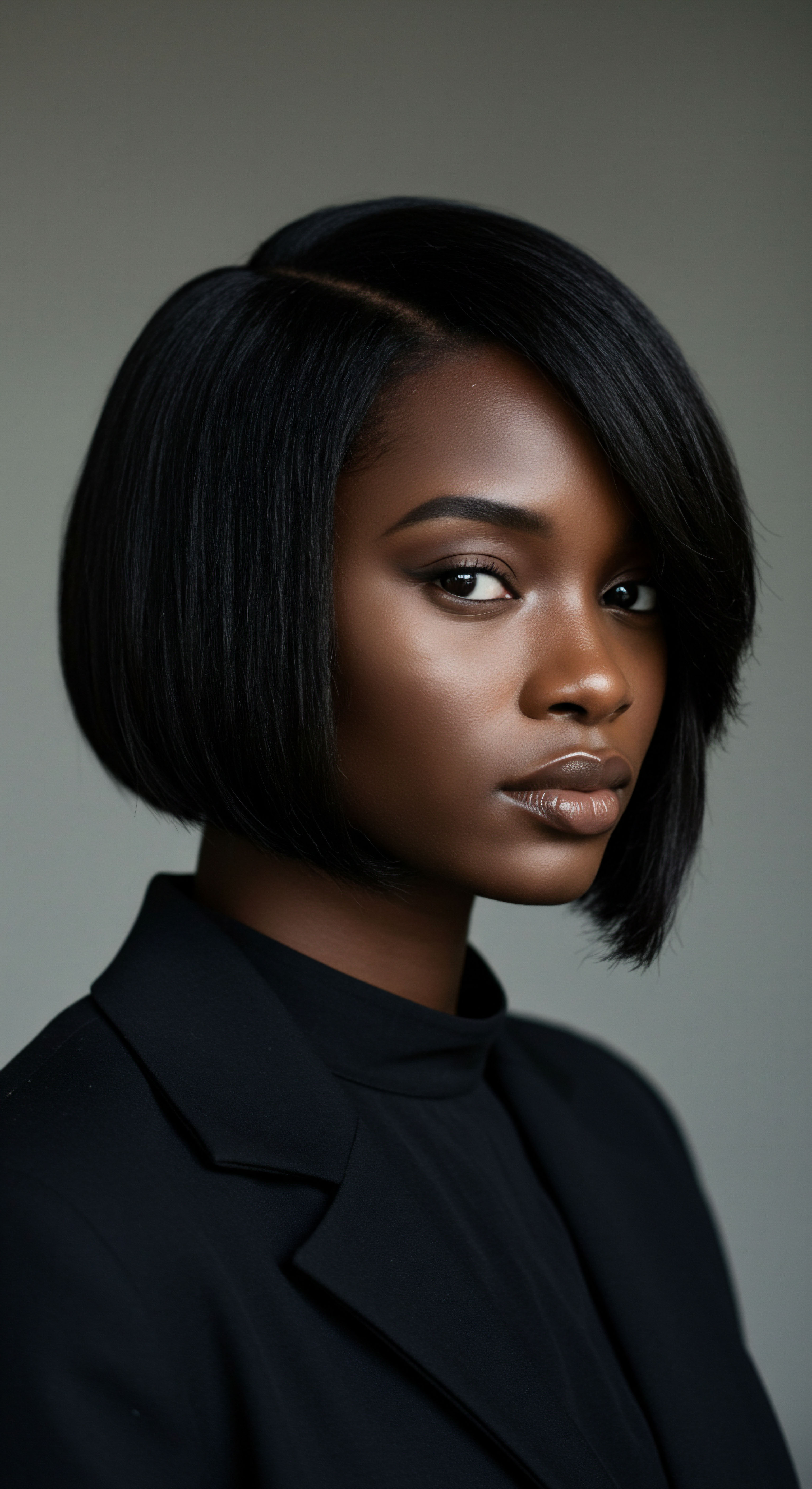
Roots
The very strands that crown our heads hold a profound, often unspoken, significance. They are more than mere biological extensions; they serve as silent communicators of who we are, where we come from, and how we wish to be perceived by the world. This deep connection between hair and our inner sense of self becomes particularly apparent when considering alterations like hair extensions. How might adding length, volume, or a different texture to one’s natural hair resonate within the quiet chambers of personal identity?
Across human history, hair has consistently held a powerful symbolic position. Ancient civilizations celebrated hair as a sign of cultural identity and spirituality. From the intricate styles of West African communities that communicated age, marital status, and social standing, to the symbolic power of hair in various rites of passage, its meaning runs deep through the human story.
Even the simple act of a haircut or a particular style can convey messages about social norms or shifts in societal ideologies. This historical lens offers a crucial starting point for understanding how something as seemingly external as hair extensions might influence something as internal as self-perception.
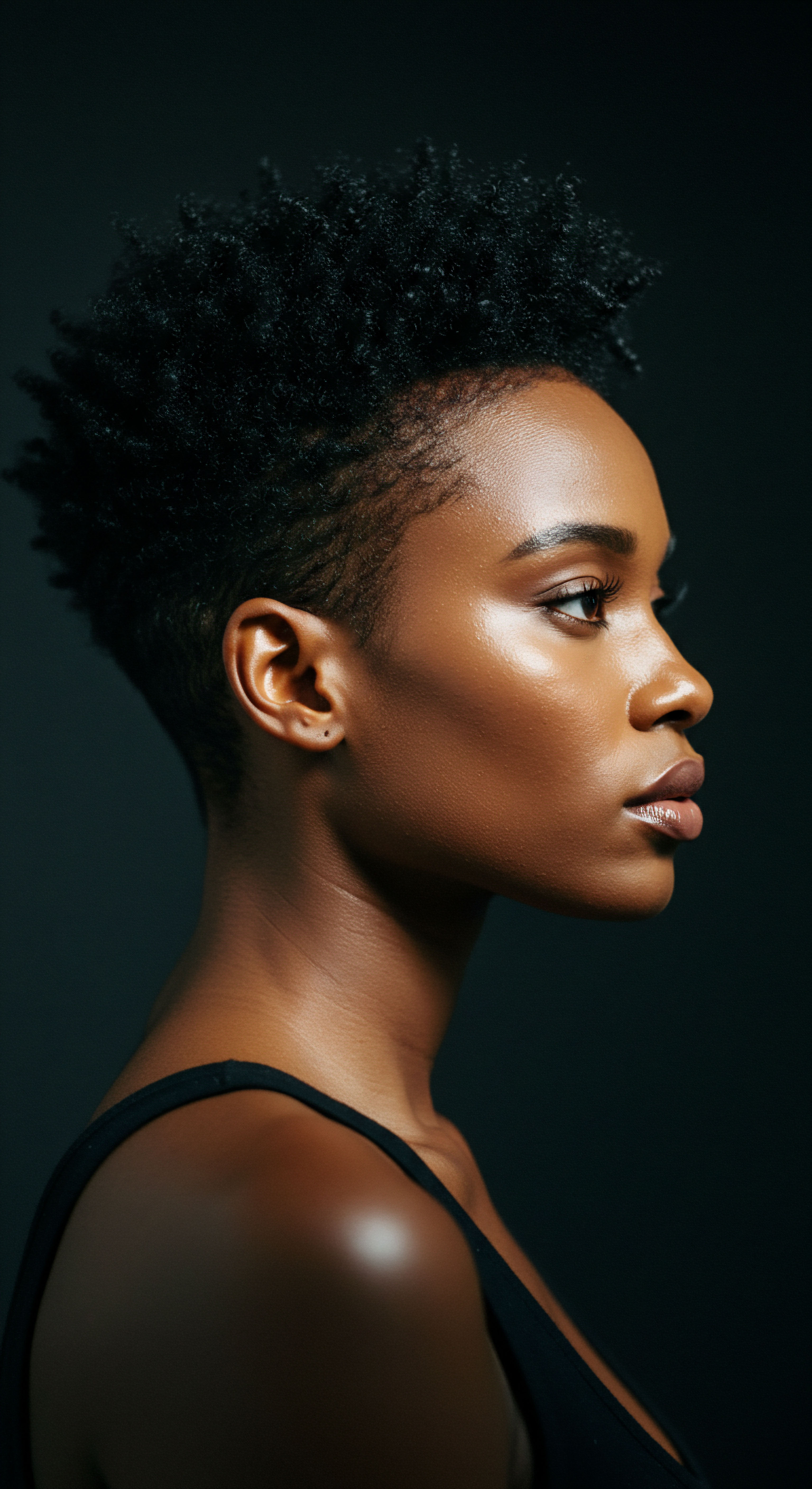
Hair Anatomy and Its Personal Connection
At its fundamental level, hair is a complex biological structure, yet its personal meaning extends far beyond keratin and disulfide bonds. Each strand emerges from a follicle, growing through cycles that dictate its length and presence. For textured hair, these cycles and the unique structure of the follicle result in the incredible variety of curls, coils, and waves that define its beauty. Understanding the biological reality of hair helps us appreciate the canvas upon which personal and cultural expression takes shape.
- Hair Follicle ❉ The tiny organ within the skin responsible for producing hair, dictating its shape and texture.
- Keratin ❉ The primary protein that composes hair, providing its strength and resilience.
- Growth Cycles ❉ The phases of hair growth (anagen, catagen, telogen) that influence hair length and shedding patterns.
The physical attributes of hair—its texture, density, and natural movement—contribute to a realistic appearance when extensions are applied. This authenticity, particularly with human hair extensions, can lead to a heightened sense of self-esteem and confidence for the wearer. Individuals often report an emotional connection to the genuine feel of human hair, seeing it as an extension of their own, rather than a mere adornment.
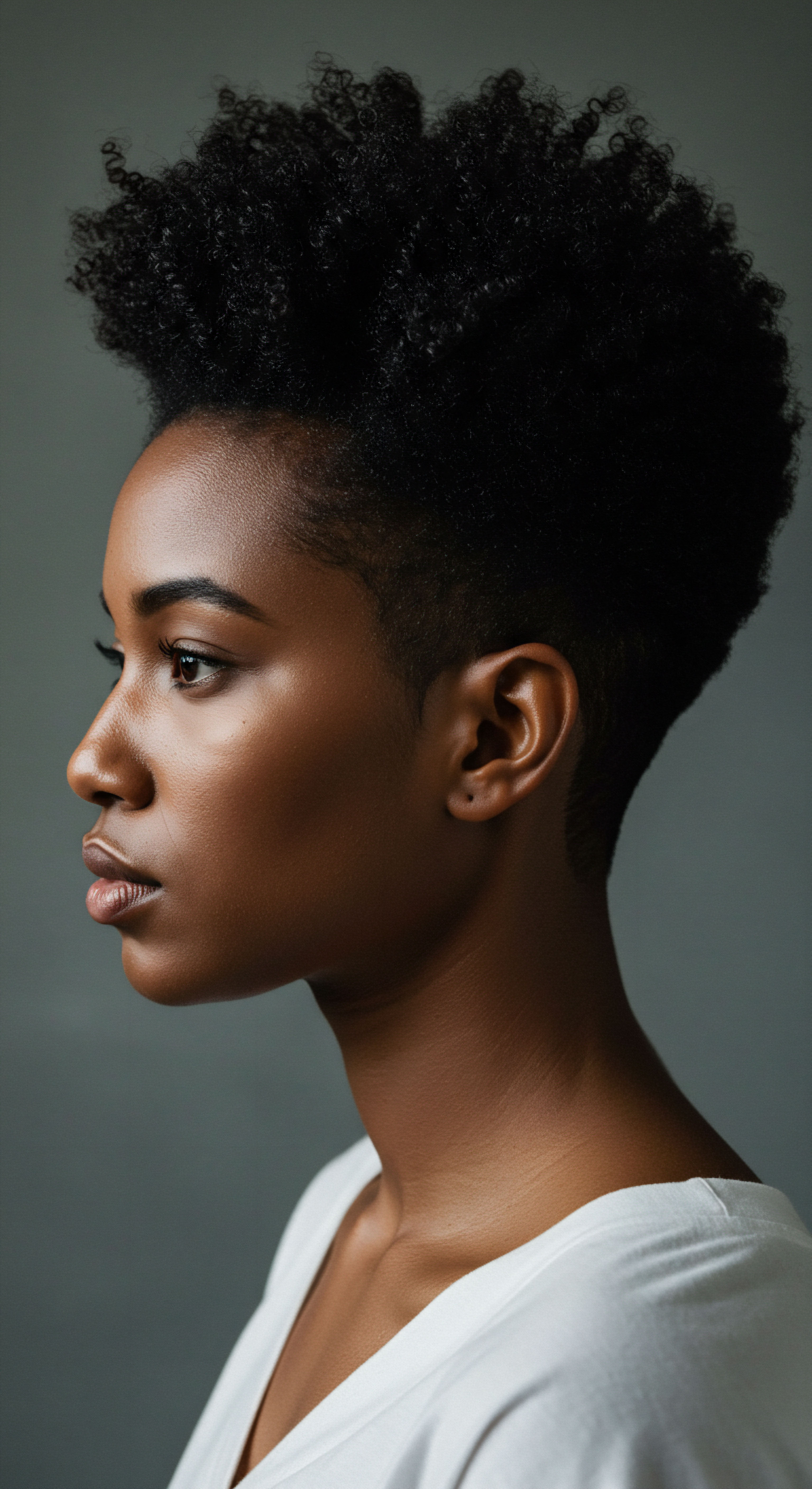
Cultural Dimensions of Hair and Identity
Hair serves as a profound marker of racial and ethnic identity, particularly for Black individuals. Its historical significance within Black communities is a narrative of pride, resilience, and heritage. Styles like braids, locs, and Afros are not merely aesthetic choices; they are deeply rooted in traditions passed down through generations.
The act of embracing natural Black hair today frequently stands as a declaration of self-love and a challenge to Eurocentric beauty standards. This cultural weight means that any alteration to hair, including the addition of extensions, can carry layers of personal and collective meaning.
Hair, across cultures and throughout history, has served as a powerful symbol of identity, status, and personal expression, making its alteration a deeply personal act.
Historically, the control and manipulation of Black hair have been linked to broader power structures. During the transatlantic slave trade, the shaving of captives’ hair aimed to strip them of their cultural identity. This act erased elaborate hairstyles that signified age, religion, marital status, ethnic identity, wealth, and rank, reducing individuals to anonymous chattel. This history underscores the profound connection between hair and one’s place in the world, and how external forces can attempt to diminish that connection.
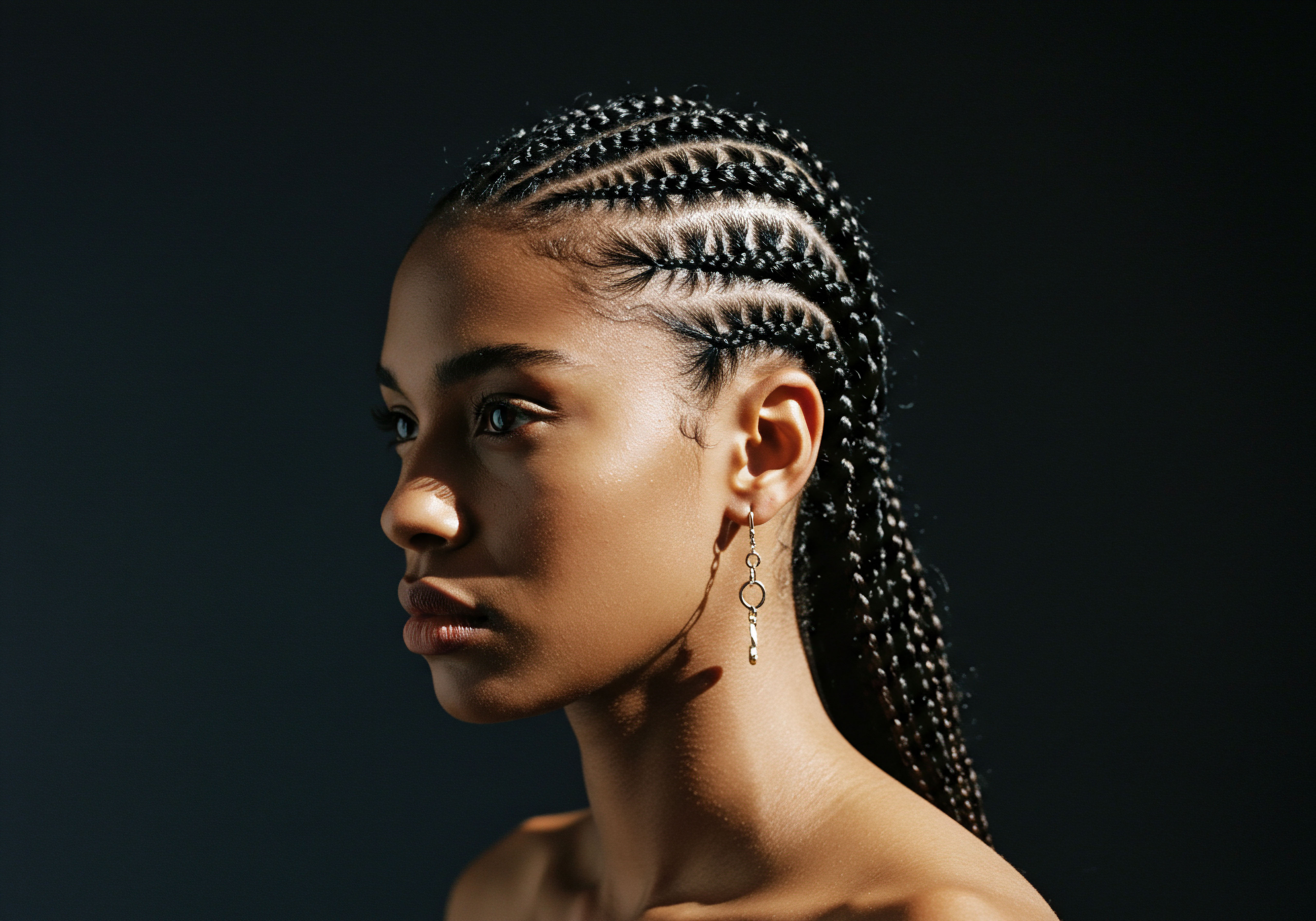
Ritual
Stepping from the foundational understanding of hair’s deep roots, we now consider the daily and periodic practices that shape our interaction with it. The application of hair extensions, while a stylistic choice, also becomes a ritualistic act, influencing not only external appearance but also the internal landscape of self-perception. This practice, when viewed through the lens of personal agency and societal influence, reveals layers of meaning that extend beyond simple aesthetics. How do these modern rituals of hair enhancement interact with our inner sense of self?
The use of hair extensions can offer a temporary yet potent solution for those seeking to alter their look, add volume, or achieve greater length. This adaptability allows for stylistic experimentation without the long-term commitment or potential damage associated with permanent chemical treatments. For many, this versatility becomes a canvas for self-expression, enabling them to convey different aspects of their personality and preferences.
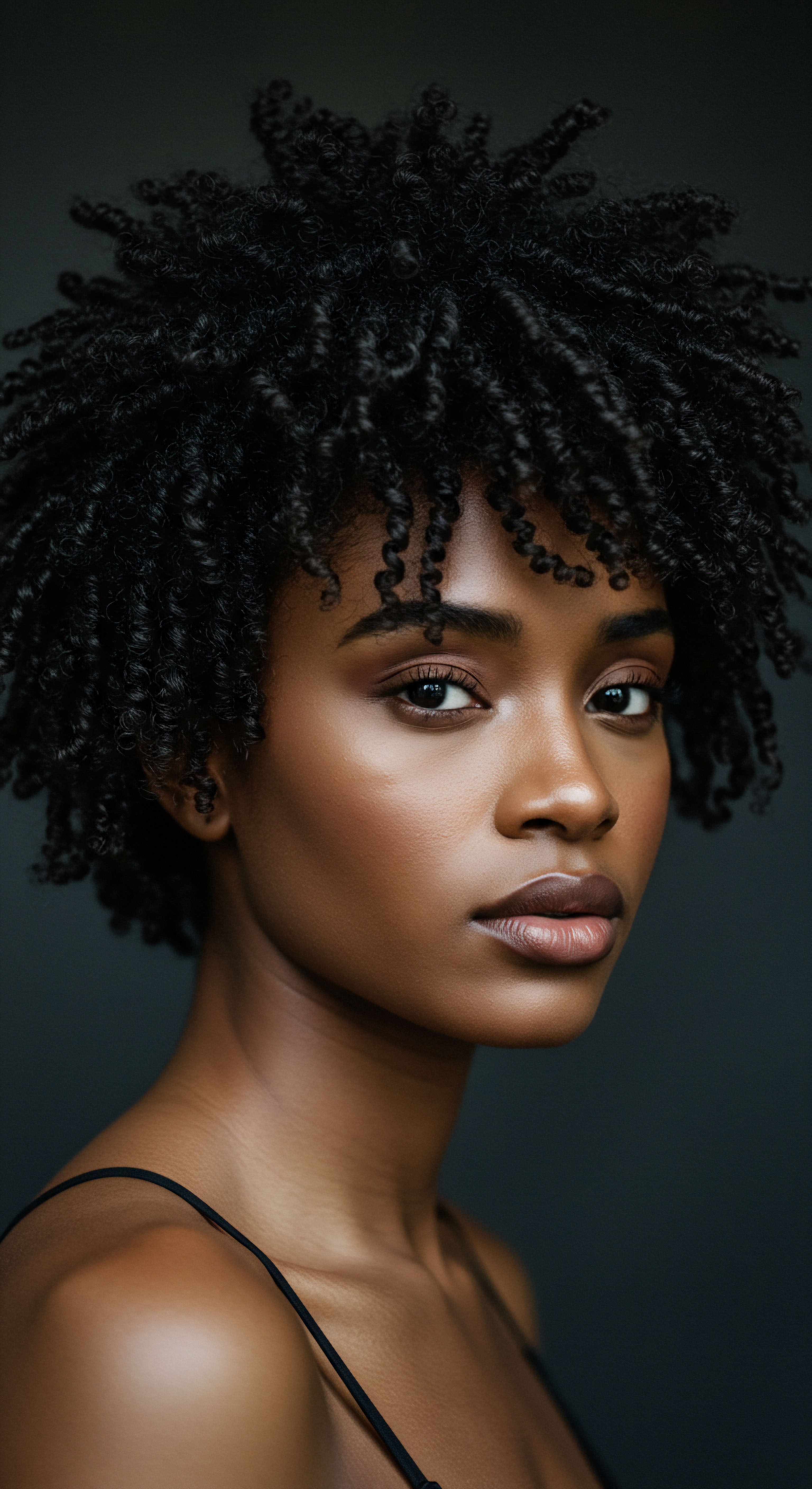
Psychological Shifts with Hair Alteration
The act of changing one’s hairstyle, particularly through extensions, can significantly influence psychological states. Research suggests a positive correlation between cosmetic alterations and increased self-esteem and confidence. A study published in the Journal of Cosmetic Dermatology found that individuals wearing hair extensions reported a notable increase in self-confidence and overall satisfaction with their appearance. This suggests a direct link between enhanced physical appearance, aided by extensions, and improvements in emotional well-being.
This psychological uplift can be attributed to several factors. When an individual perceives their appearance as more aligned with societal beauty standards or their personal aesthetic ideal, it can diminish feelings of inadequacy. The positive reactions and compliments received from others can further reinforce this improved self-perception, creating a positive feedback loop that strengthens self-assurance.
Hair extensions, through their transformative capacity, can serve as a potent tool for self-expression, enabling individuals to align their external presentation with their internal self-perception.
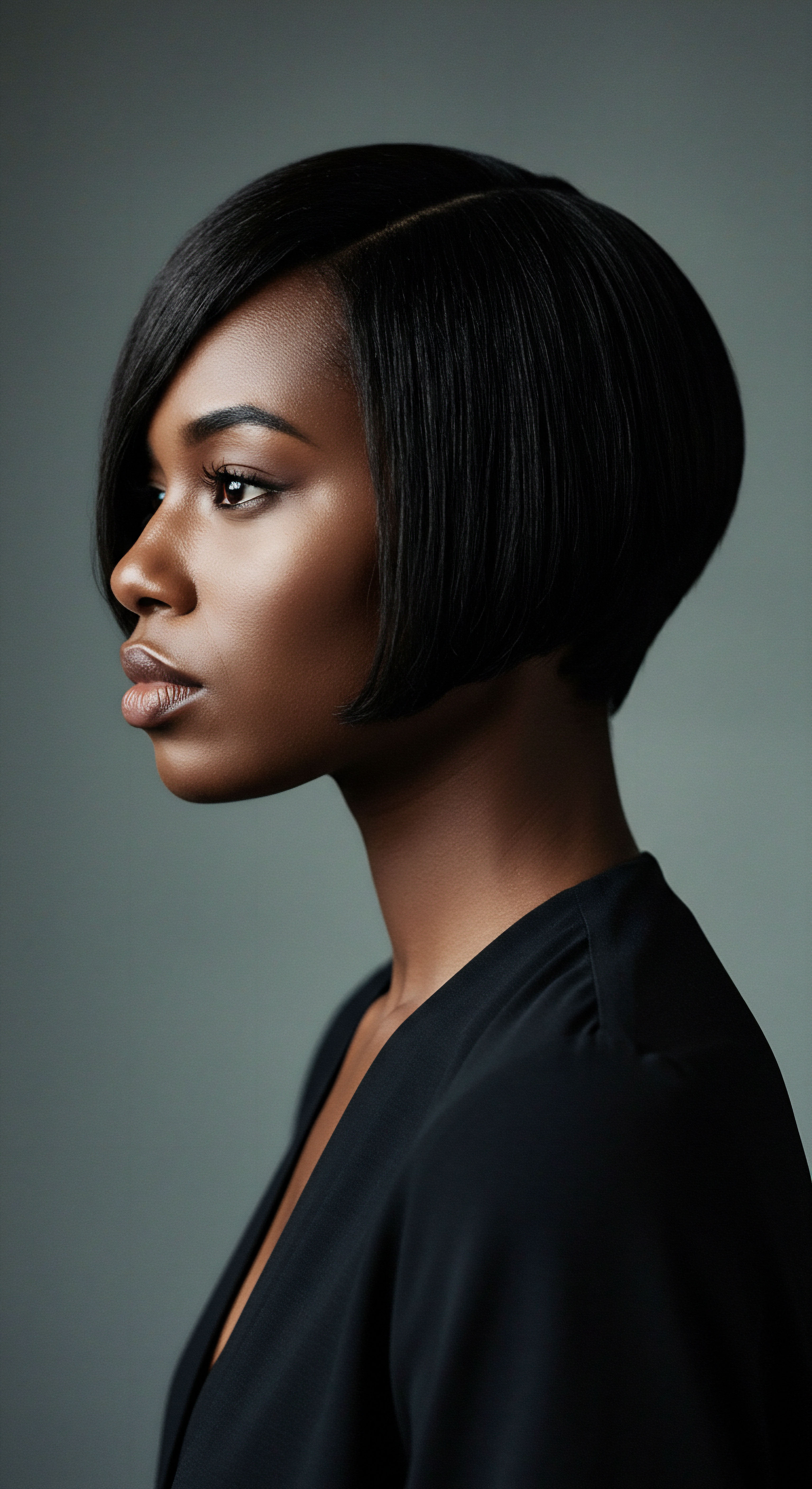
Hair Extensions and Self-Expression
The diverse options available in hair extensions, from tape-ins to clip-ins and various types of weaves, allow for extensive personal expression. A person might choose vibrant colors to project a bold persona, or opt for natural-looking extensions to maintain a classic, understated image. This capacity for physical transformation often mirrors an internal process of identity exploration.
The freedom to experiment with different lengths, textures, and colors provides a deeper understanding of personal preferences and style. This exploration, facilitated by extensions, can contribute to a heightened sense of self-awareness and a greater acceptance of unique traits. The transformative aspect of hair extensions can foster a sense of empowerment, as individuals take control of their appearance and how they present themselves to the world.
However, it is also important to consider the potential for an over-reliance on extensions to lead to a distorted self-image. If one becomes unable to accept their natural hair without the added length or volume, it may reinforce unrealistic beauty standards. A balanced approach to beauty enhancement, recognizing the value of natural hair alongside the versatility of extensions, remains a key aspect of healthy self-perception.
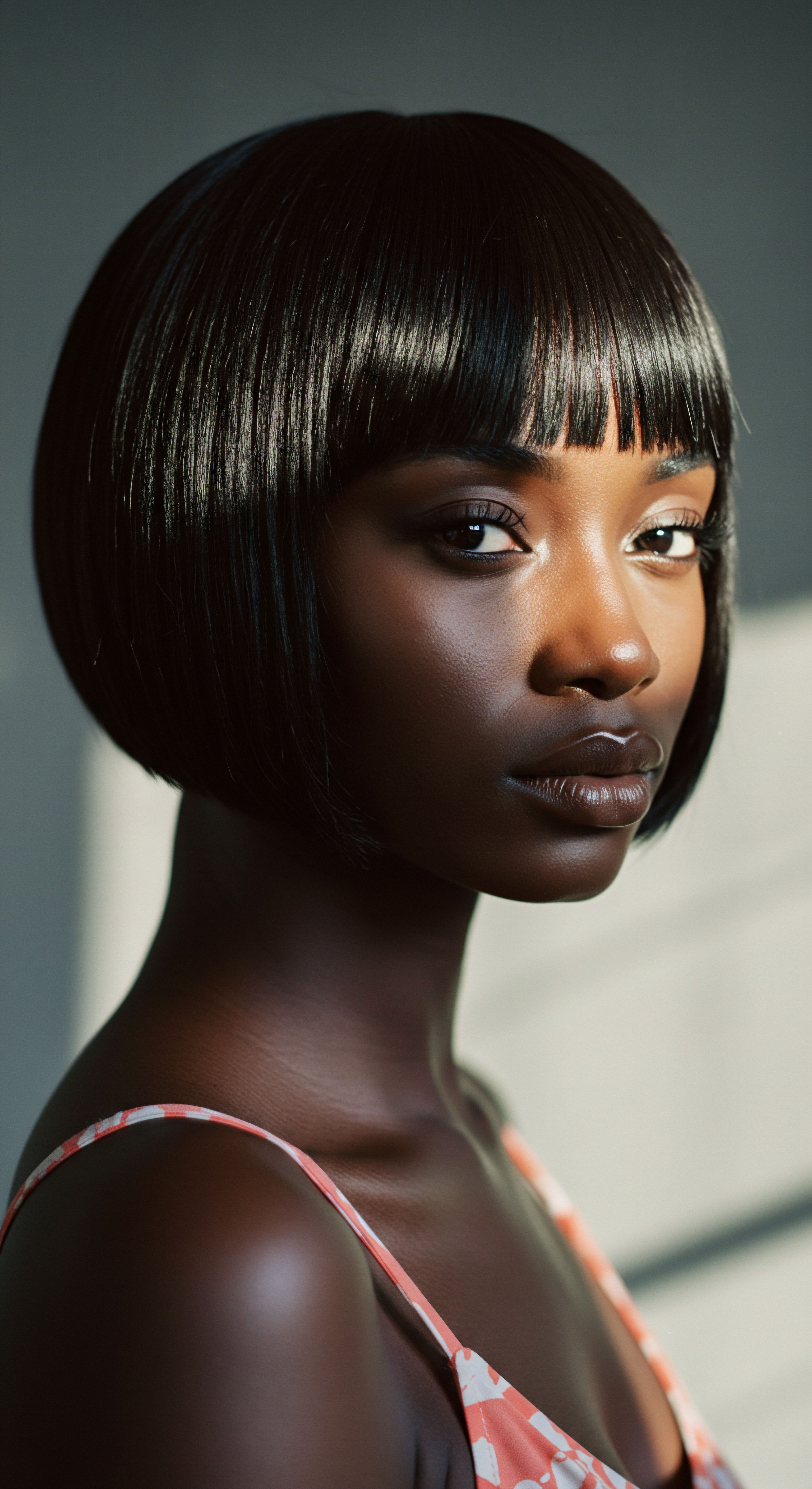
Relay
Beyond the surface and the immediate practice, a deeper exploration reveals how hair extensions, as cultural artifacts and personal choices, relay complex messages about identity, societal pressures, and psychological well-being. How do these modern adornments interact with the historical and social forces that shape our understanding of beauty and self-worth? This inquiry necessitates a look at the interplay of biological realities, psychological responses, and the powerful currents of cultural and social expectations.
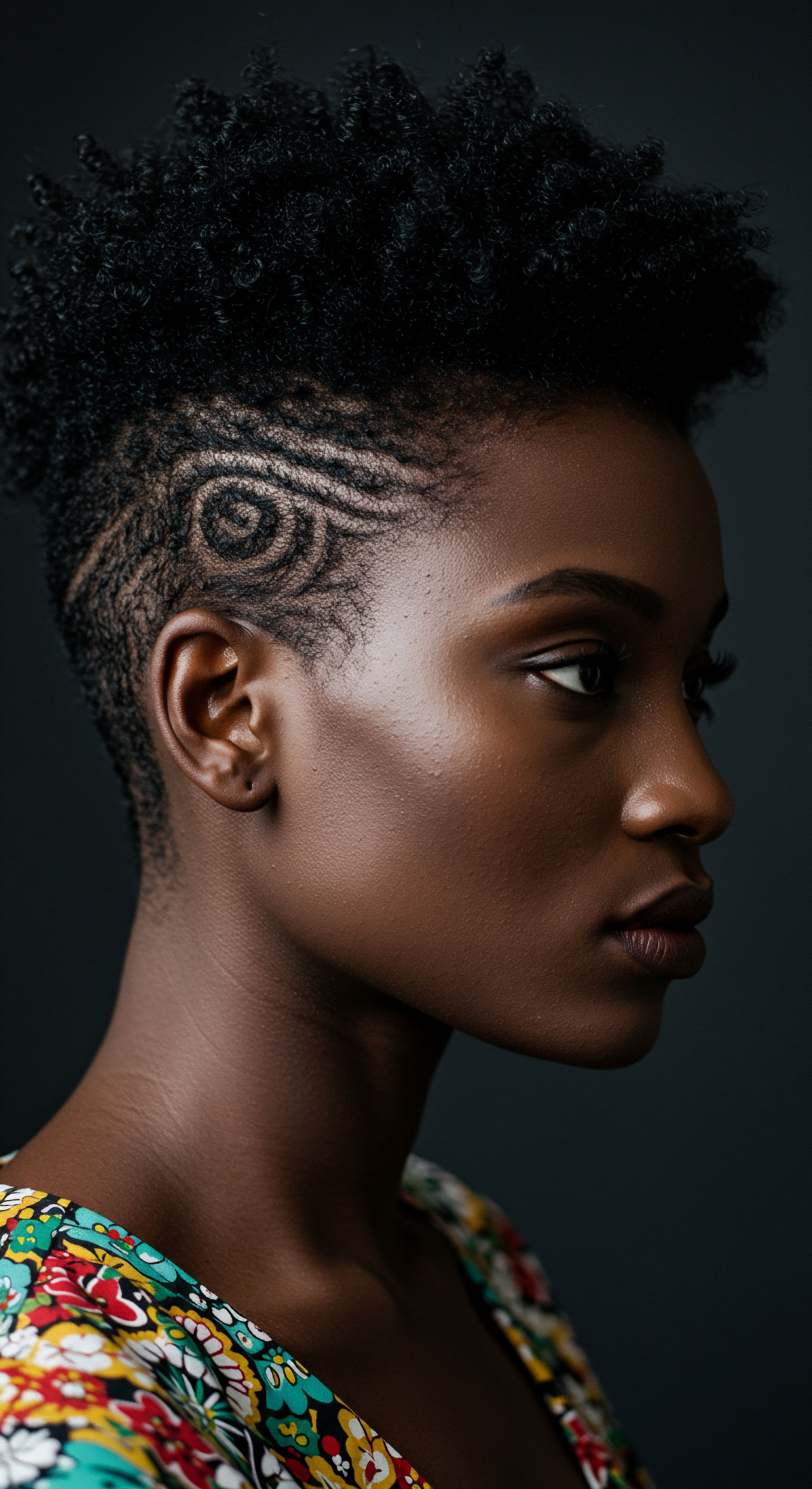
Societal Beauty Standards and Psychological Impact
Society often promotes narrow beauty standards, heavily influenced by media and advertising, which can significantly affect mental health. Constant exposure to idealized images can lead to feelings of inadequacy and pressure to conform to unattainable ideals. This pressure can increase the risk of low self-esteem, negative body image, and even depression.
For Black women, specifically, the history of hair is deeply intertwined with these societal pressures. Historically, long, straight hair, often seen as a marker of Eurocentric beauty, was considered “well-adjusted” by white society. This led to a preference for straightened hair as a signal of middle-class status, while natural styles like cornrows and plaits were often disdained.
A significant case study illustrating this impact is the 2016 “Good Hair” study, which measured perceptions of natural hair. The study revealed that Black women, on average, experienced more anxiety about their hair than white women and devoted more time and resources to grooming rituals. They also perceived a level of social stigma due to white beauty standards.
Conversely, white women in the study rated natural hair as less beautiful, less attractive, and less professional than straight hair. This data underscores the profound external pressures that can influence how textured hair is perceived, and by extension, how hair extensions might be used to navigate these societal expectations.
The adoption of hair extensions often mirrors a complex negotiation between personal desires for aesthetic change and the pervasive influence of societal beauty ideals.
The decision to wear hair extensions, particularly within communities where natural hair has faced historical marginalization, can represent a complex interplay of motivations. For some, it might be a practical choice for protection or convenience. For others, it might be a conscious step towards aligning with a perceived ideal, whether that ideal is personally chosen or culturally imposed. The impact on self-perception can be substantial; feeling judged or marginalized due to one’s natural appearance can foster feelings of isolation and self-consciousness.
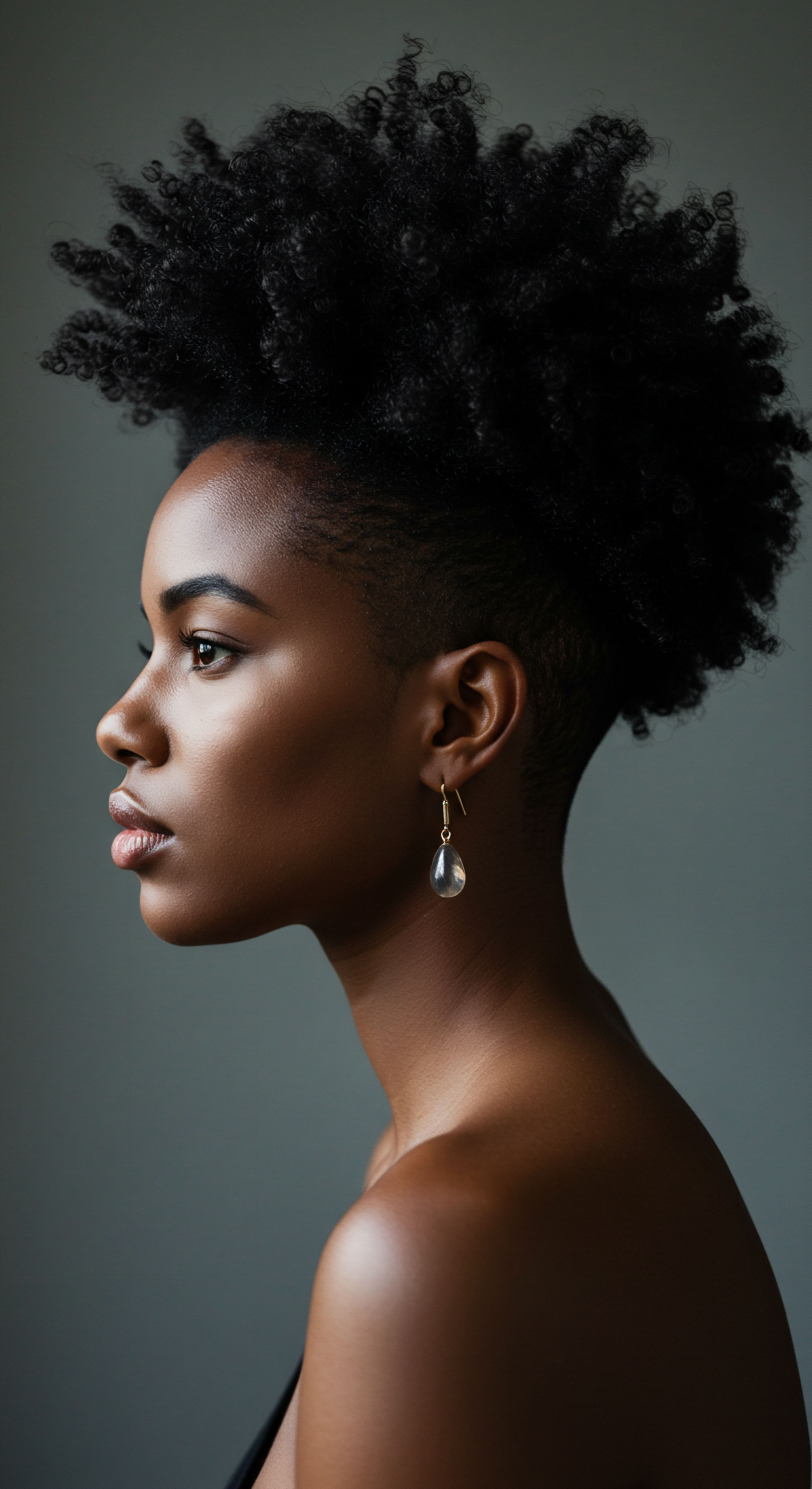
Hair as a Social Signifier and Identity Marker
Hair is not merely a personal adornment; it is a social signifier, communicating messages about individuality, group affiliation, and even political stances. In the context of hair extensions, this can become particularly interesting. Extensions allow for a rapid transformation, enabling individuals to present a different social self, perhaps one that aligns more closely with professional expectations or a desired social image.
Consider the broader context of appearance and mental health. How we perceive ourselves directly influences our self-esteem and confidence. If an individual feels content with their appearance, it can bolster their self-worth and encourage more positive social interactions. Conversely, low self-perception can lead to feelings of inadequacy and withdrawal from social situations.
Hair, as a highly visible aspect of appearance, plays a significant role in this dynamic. A “good hair day” can elevate morale, improve mood, and enhance social interactions, while a “bad hair day” can have the opposite effect, leading to insecurity.
| Aspect of Self Self-Esteem |
| Potential Influence of Hair Extensions Often reports a boost due to perceived aesthetic improvement and external validation. |
| Aspect of Self Self-Perception |
| Potential Influence of Hair Extensions Can become more positive, aligning external appearance with desired internal image. |
| Aspect of Self Social Confidence |
| Potential Influence of Hair Extensions Increased willingness to engage in social interactions and project a positive attitude. |
| Aspect of Self Identity Exploration |
| Potential Influence of Hair Extensions Allows for experimentation with different personas and styles, contributing to self-awareness. |
| Aspect of Self Body Image |
| Potential Influence of Hair Extensions Can improve satisfaction, but risks distorted self-image if natural hair is not accepted. |
| Aspect of Self The impact of hair extensions on an individual's sense of self is a complex interplay of internal and external factors. |
The choice to wear extensions can be a declaration of personal freedom, a means to achieve a desired aesthetic, or a response to social pressures. For Black women, specifically, studies indicate that self-esteem is significantly associated with “hair-esteem,” which is an indicator of self-worth and acceptance regarding one’s hair. This connection highlights that for many, hair is not merely an accessory but a deeply personal component of their identity.
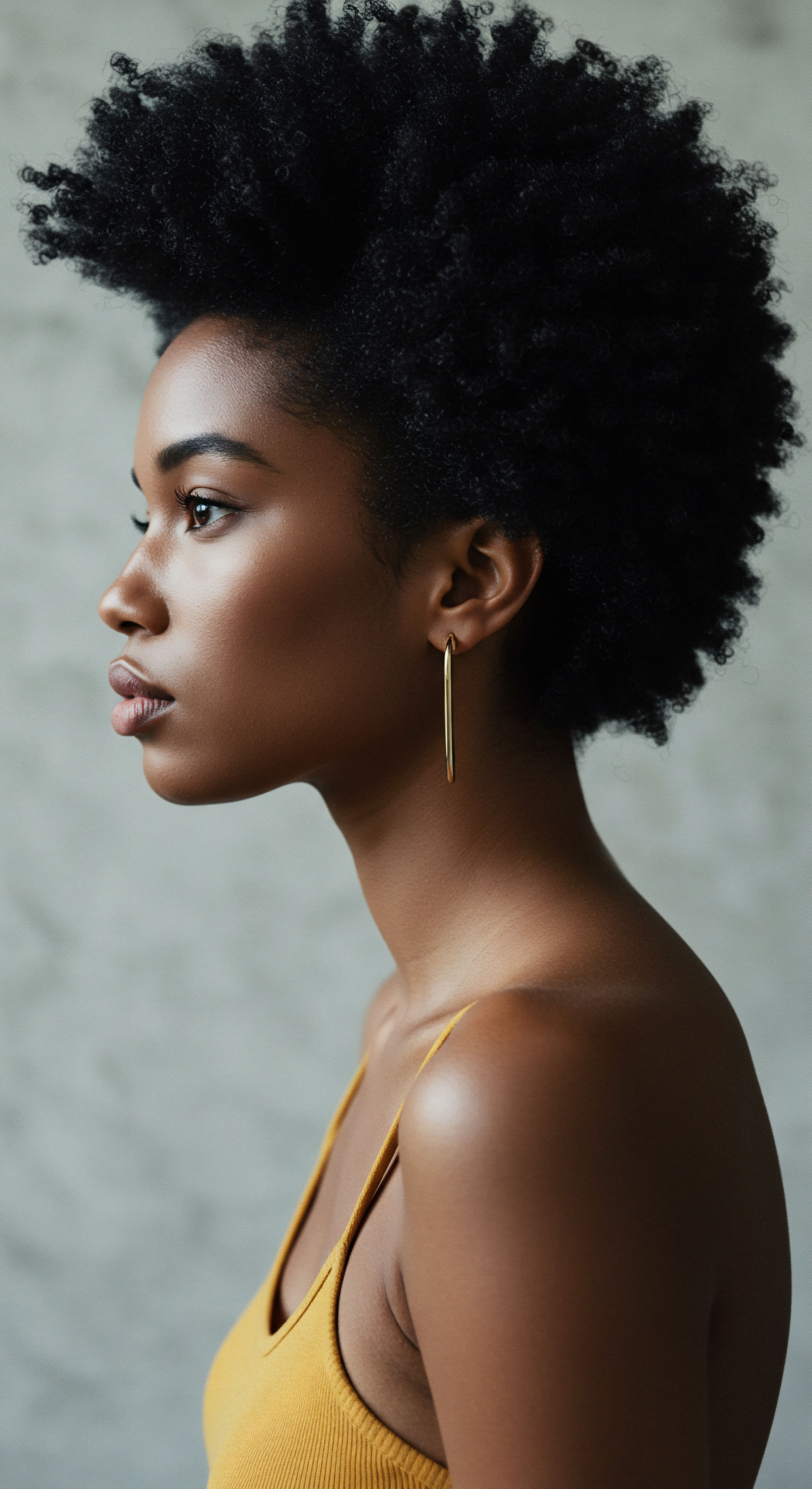
Beyond the Surface ❉ Long-Term Psychological Considerations
While the immediate psychological benefits of hair extensions are often reported, it is prudent to consider the long-term implications. A dependency on extensions to feel confident or beautiful could hinder the acceptance and appreciation of one’s natural hair. This could lead to a cycle where natural hair is viewed as “less than,” potentially contributing to dissatisfaction when extensions are not present.
Conversely, when used as a tool for creative expression and temporary change, extensions can contribute to a healthy relationship with one’s appearance. The key lies in maintaining a grounding in self-acceptance, recognizing that extensions are an enhancement, not a replacement for intrinsic self-worth. The journey with hair, whether natural or augmented, becomes a reflection of one’s ongoing relationship with self and the world.
- Personal Agency ❉ The conscious decision to use extensions for personal expression rather than solely for external validation.
- Hair Health ❉ Prioritizing the health of natural hair beneath extensions to prevent damage and maintain integrity.
- Self-Acceptance ❉ Cultivating an appreciation for one’s natural hair texture and length, independent of extensions.
The psychology of hair extensions, therefore, extends beyond simple aesthetics. It delves into how individuals define themselves, present themselves to the world, and navigate the intricate dance between inner feelings and outer appearances.
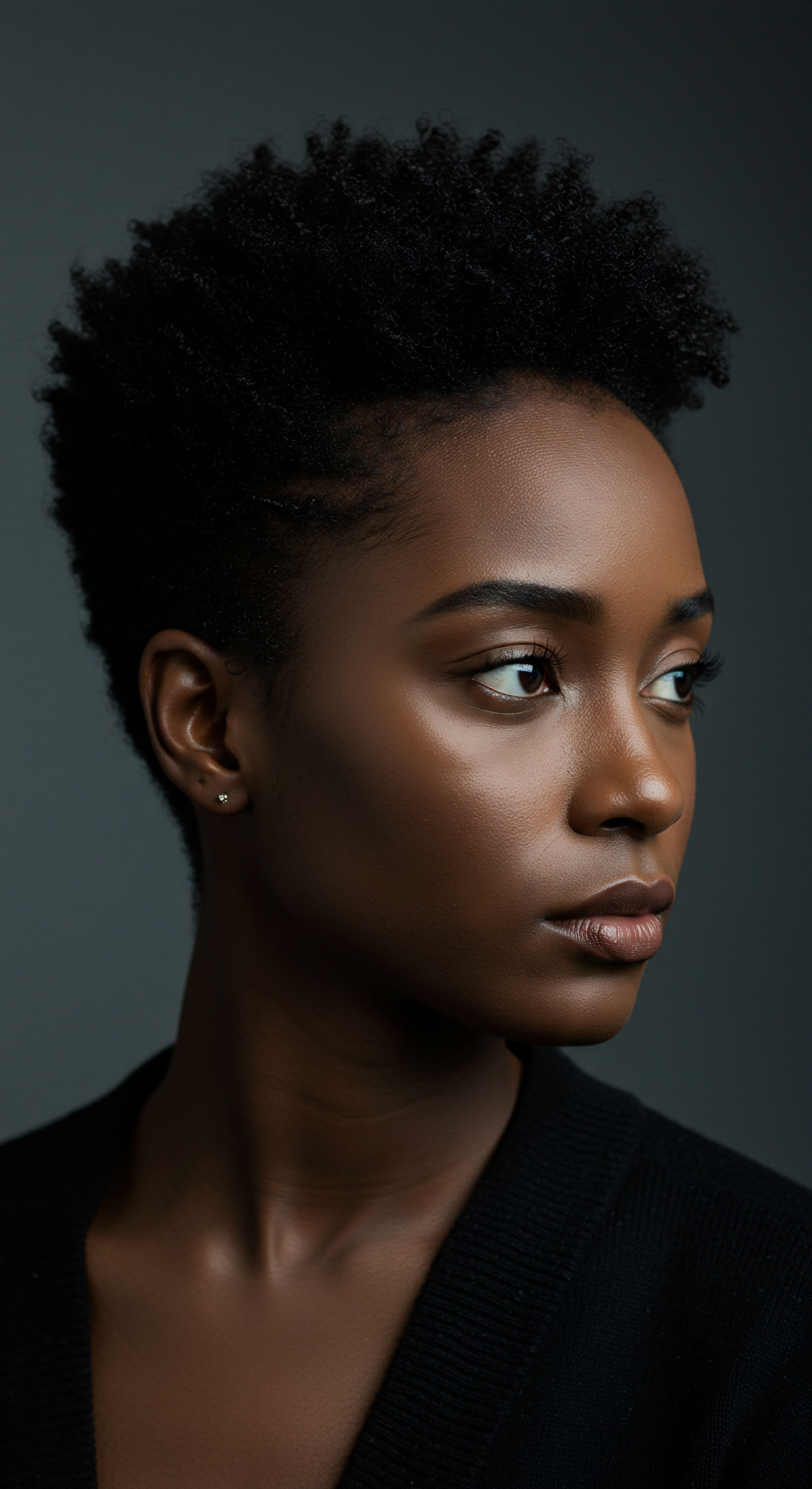
Reflection
The journey through the intricate world of hair extensions and their connection to our sense of self reveals a landscape far richer than simple adornment. It invites us to pause and consider the profound interplay between our outward presentation and our deepest inner feelings. Each strand, whether natural or added, carries stories—of heritage, aspiration, and the quiet quest for self-acceptance. As we consider the paths our hair takes, we also reflect upon the paths of our own becoming, recognizing that true beauty always radiates from within, a light that no external change can diminish.
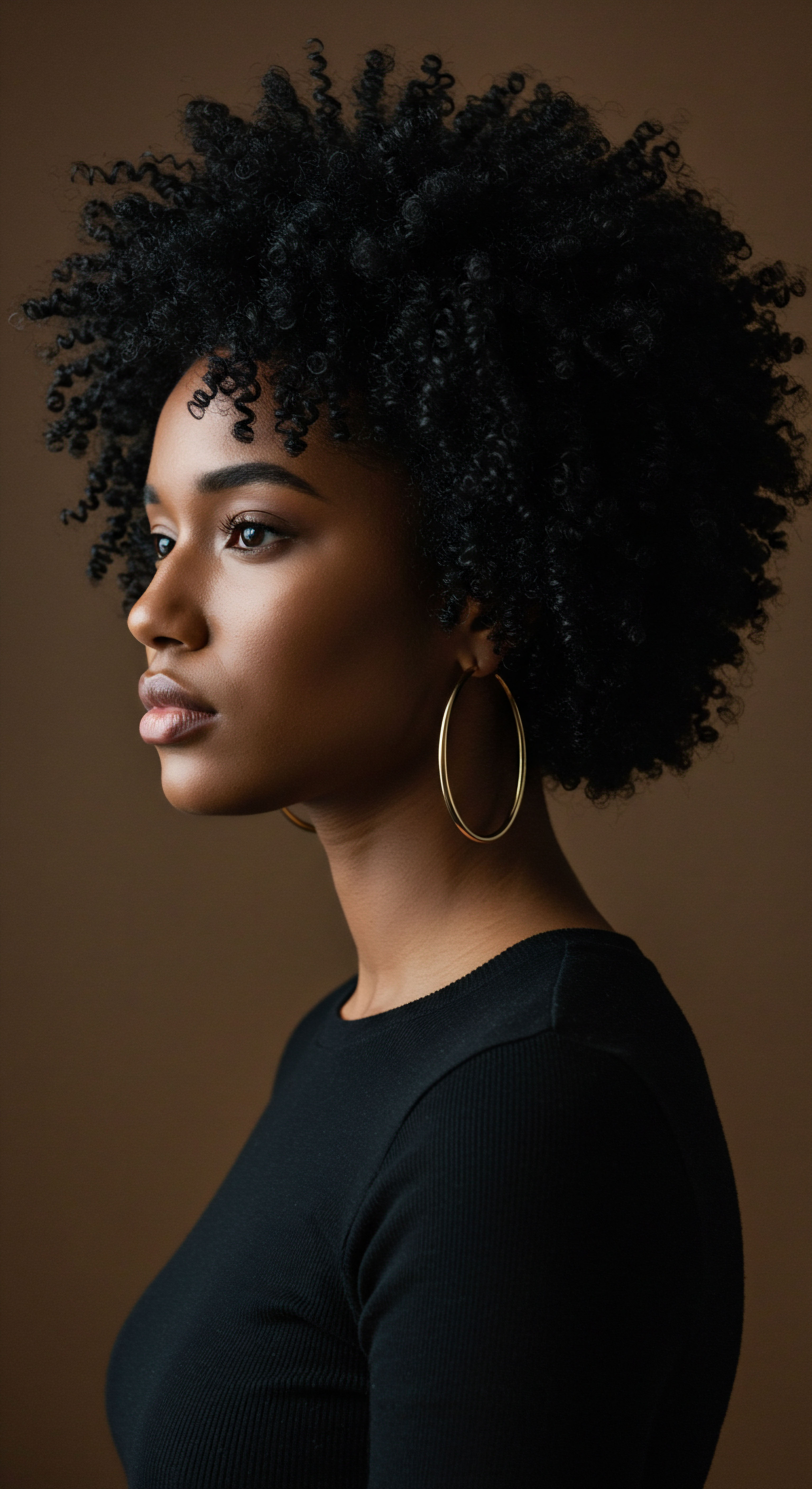
References
- Banks, Ingrid. 2000. Hair Matters ❉ Beauty, Power, and Black Women’s Consciousness. New York and London ❉ NYU Press.
- Byrd, Ayana, and Lori Tharps. 2001. Hair Story ❉ Untangling the Roots of Black Hair in America. St. Martin’s Press.
- Cash, Thomas F. 1990. The Psychology of Hair ❉ A Review. Journal of Applied Social Psychology.
- Delaney, Carol. 1994. Untangling the Meanings of Hair in Turkish Society. Anthropological Quarterly 67 (4) ❉ 159-172.
- Johnson, T. and T. Bankhead. 2014. Hair It Is ❉ Examining the Experiences of Black Women with Natural Hair. Open Journal of Social Sciences 2 (1) ❉ 86-100.
- Patzer, Gordon L. 2008. The Power and Paradox of Physical Attractiveness. Universal-Publishers.
- Roberts, L. R. A. A. R. Phinney, and K. L. M. MacKay. 2009. Hair and Self-Esteem ❉ An Exploration of Women’s Perceptions. Journal of Cosmetic Dermatology 8 (4) ❉ 281-286.
- Sforza, A. A. P. C. da Silva, and J. L. F. de Oliveira. 2014. The Psychological Impact of Hair Extensions on Women’s Self-Esteem and Mood. Journal of Psychosocial Nursing and Mental Health Services 52 (9) ❉ 46-52.
- Stenn, Kurt. 2016. Hair ❉ A Human History. Pegasus Books.
- Synnott, Anthony. 1987. Shame and Glory ❉ A Sociology of Hair. British Journal of Sociology 38 (3) ❉ 381-413.
- Weitz, Rose. 2004. Rapunzel’s Daughters ❉ What Women’s Hair Tells Us about Women’s Lives. Farrar, Straus and Giroux.